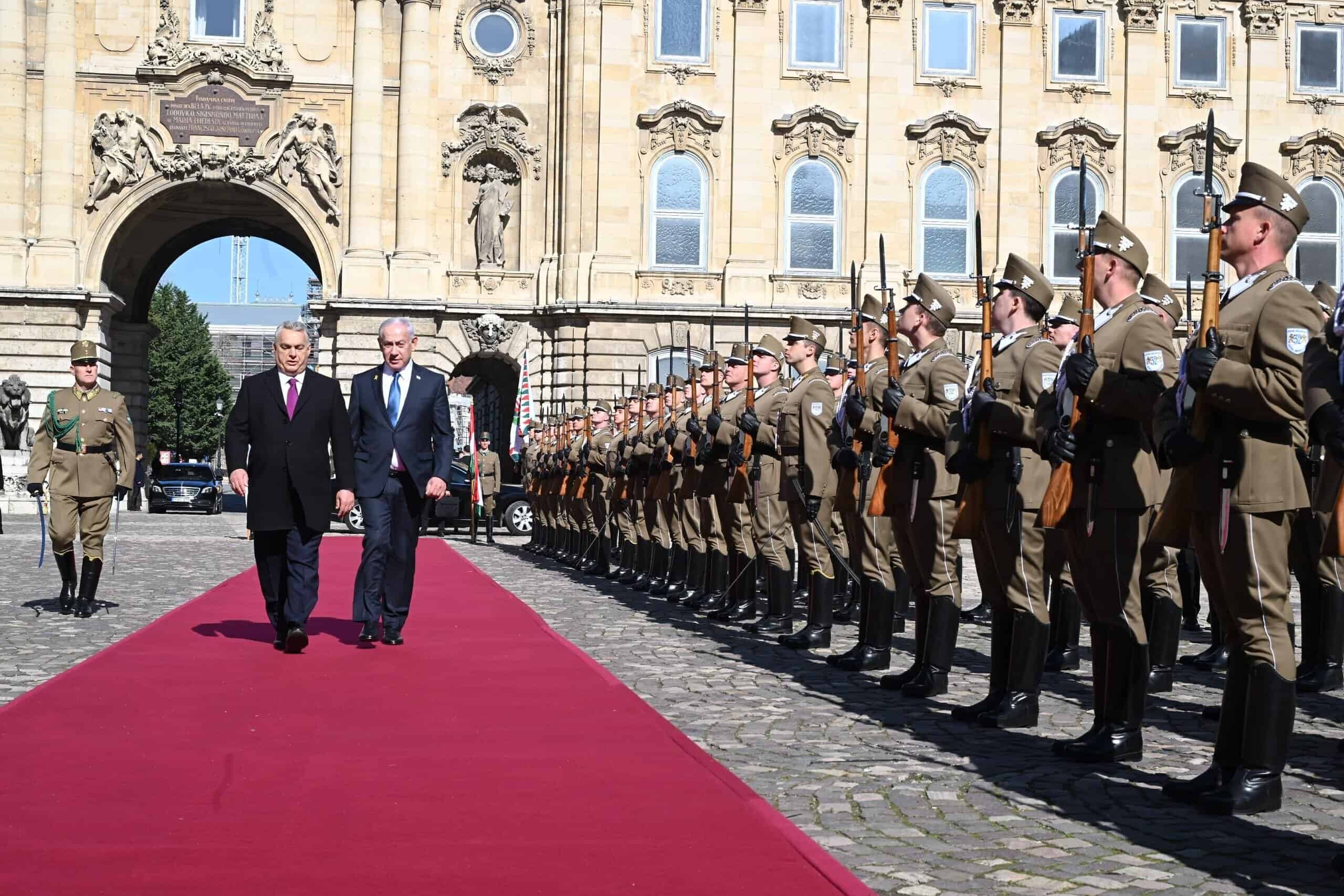
 Wojna socjalizmu z Żydami – od Marksa do dzisiaj
Wojna socjalizmu z Żydami – od Marksa do dzisiaj
Elder of Ziyon
Tłumaczenie: Małgorzata Koraszewska
(Jest to kontynuacja mojego cyklu na temat supersesjonizmu jako cechy definiującej antysemityzm.)
Karol Marks w pracy W kwestii żydowskiej (1843) bardzo jasno wyraził antysemityzm, w takich fragmentach jak „Jaki jest świecki kult Żyda? Handlarz. Jaki jest jego świecki Bóg? Pieniądz”. Ale esej pokazuje również jego pragnienie oczyszczenia świata z narodu żydowskiego jako narodu i żydowskich idei, mówiąc: „W ostatecznej analizie emancypacja Żydów jest emancypacją ludzkości od judaizmu”.
Marks nie był po prostu antysemitą – uważał Żydów i judaizm za bezpośrednie obalenie swoich teorii, zagrożenie dla całego swojego światopoglądu.
W artykule The Russian Loan w „New York Daily Tribune” z 4 stycznia 1856 r. pisze: „Ale tylko dlatego, że Żydzi są tak silni, nadeszła pora celowego demaskowania i stygmatyzowania ich organizacji”. Chciał wziąć na cel Żydów, ponieważ Żydzi – nie tylko żydowscy bankierzy, ale Żydzi – stanowili zagrożenie dla całego jego światopoglądu.
Jednak Marks doskonale wiedział, że Żydzi nie urodzili się burżuazją. Żydowscy bankierzy, których nienawidził, zaczynali jako robotnicy i drobni przedsiębiorcy w najlepszym razie, i sami ciężko pracowali, by zostać bankierami. W teorii marksistowskiej mobilność klasowa była rzadka, a robotnicy w kapitalizmie mogli jedynie aspirować do stania się „drobną burżuazją” jak sklepikarze. Żydowski sukces, który Marks atakuje w tym artykule, podważa sam rdzeń jego teorii.
To nie jest jedyny sposób, w jaki judaizm stanowi bezpośrednie wyzwanie dla zasad marksistowskich. Według Marksa moralność jest kształtowana wyłącznie przez systemy ekonomiczne, podczas gdy dla judaizmu moralność jest niezależna od klasy lub materializmu. Według Marksa jednostki są kształtowane przez swoją klasę i warunki ekonomiczne i nie mają prawdziwie wolnej woli; dla judaizmu wolna wola jest podstawą. Według Marksa wszyscy ludzie są definiowani przez swoją klasę – proletariat lub burżuazję; europejscy Żydzi nie tylko wykroczyli poza to uproszczone szufladkowanie, ale judaizm koncentruje się zarówno na wyżynach, jakie Żydzi mogą osiągnąć jako jednostki, jak i jako Naród Wybrany, przy czym klasowa przynależność jednostek jest całkowicie nieistotna.
To jest początek socjalistycznego supersesjonizmu, ale to nie jest cała historia. Marksistowska i socjalistyczna nienawiść rozszerzyła się na syjonizm i Izrael.
Nowopowstały Izrael był silnie socjalistyczny. Partia Pracy dominowała politykę, a programy socjalne były (i są) ważną częścią struktury życia Izraela. Związek Radziecki uznał Izrael wkrótce po tym, jak ogłosił on niepodległość, mając nadzieję, że stanie się radzieckim satelitą. Izrael pokazał swoje poparcie dla Zachodu w 1949 r., z rosnącymi powiązaniami z USA pod rządami Trumana, co wywołało sowiecką negatywną reakcję i wkrótce ZSRR stał się najzacieklejszym wrogiem syjonizmu.
Jednym ze sposobów, w jaki sukces Izraela był najbardziej bolesny, było to, że był miejscem prawdopodobnie najbardziej udanego eksperymentu socjalistycznego w historii: systemu kibuców. Te wspólne gospodarstwa wkrótce produkowały 40% izraelskiej produkcji rolnej i były ekonomicznie opłacalne w latach 40. i 50. XX wieku. Porównajmy to z radzieckimi eksperymentami kolektywizacji gospodarstw rolnych w latach 30., które zakończyły się ogromną porażką i były przyczyną głodu, który zabił miliony ludzi.
To było coś więcej niż tylko zazdrość o socjalistyczny sukces Izraela. Cały powód, dla którego kibuce działały, polegał na tym, że przyciągały Żydów, którzy byli nie tylko entuzjastycznymi socjalistami, ale także entuzjastycznymi syjonistami. Nie pracowali dla abstrakcyjnego proletariatu; pracowali dla swoich kibuców, dla swoich rodzin, dla Izraela. Pracowali razem, ponieważ wszyscy Żydzi pochodzili z tego samego plemienia, ich współpracownicy byli naprawdę ich braćmi, a nie tylko towarzyszami. To żydowski partykularyzm sprawił, że kibuce działały, podczas gdy przymusowa kolektywizacja zawiodła w Związku Radzieckim i wszędzie indziej. Duma z bycia częścią narodu żydowskiego motywowała kibucników do ciężkiej pracy; system radziecki motywował lenistwo. Jak głosił dowcip z lat 70., nie kupuj radzieckiego samochodu Łada wyprodukowanego w poniedziałek lub piątek, ponieważ pracownicy byli albo na kacu, albo nie mogli się doczekać, żeby się napić – tak czy inaczej, niska jakość towarów wytwarzanych przez scentralizowaną gospodarkę stanowiła ostry kontrast z izraelskimi socjalistycznymi pracownikami, którzy byli dumni ze swojej pracy.
Zarówno Sowieci, jak i syjoniści tworzyli plakaty propagandowe przedstawiające uśmiechnięte kobiety pracujące na farmach. Tylko te izraelskie odzwierciedlały rzeczywistość.

Radziecka nienawiść do Izraela rosła wraz z równoległym antysemityzmem. Zbieg z Rumunii, Ion Mihai Pacepa szczegółowo opisał, jak radzieckie KGB utworzyło Organizację Wyzwolenia Palestyny (OWP) w 1964 r., opracowując jej statut w Moskwie, aby przedstawić Palestyńczyków jako uciskany naród potrzebujący wyzwolenia, narrację mającą na celu osłabienie Izraela i Zachodu.
Po zwycięstwie Izraela nad państwami arabskimi sprzymierzonymi z ZSRR w 1967 r., KGB wszedł na najwyższe obroty, z masowymi kampaniami anty-syjonistycznymi nie tylko w ZSRR, ale na całym świecie. Artykuł w „London Observer” z lat 70. twierdził, że Izrael ma „obozy koncentracyjne”. ZSRR przewodził rezolucji ONZ z 1975 r. uznającej syjonizm za formę rasizmu. Nowe lewicowe ruchy studenckie na Zachodzie, w tym grupy takie jak Students for a Democratic Society (SDS) w USA, przyjęły postawy anty-syjonistyczne, często wykorzystując propagandę radziecką. Wykładowcy nauk humanistycznych i społecznych, szczególnie w dziedzinach takich jak studia postkolonialne, zaczęli włączać te idee do programów nauczania – w latach 80. kursy na uniwersytetach takich jak UC Berkeley przedstawiały Izrael jako państwo kolonialno-osadnicze.
Te idee nie ograniczały się do uniwersytetów. Związki zawodowe, organizacje pozarządowe zajmujące się prawami człowieka, ruchy polityczne i media były pod wpływem radzieckiej propagandy antysyjonistycznej. Duża część dzisiejszej retoryki antyizraelskiej, takiej jak „apartheid” i „kolonializm”, pochodzi wprost z radzieckiej propagandy. Od samego początku nie była to zwykła krytyka Izraela: było to żądanie demontażu Izraela i przekształcenia syjonistów w wyrzutków. Im większe sukcesy odnosił Izrael – czy to w wojnie, czy w pokoju, ekonomiczne czy kulturowe – tym bardziej ujawniał wady socjalistycznych ideałów, pokazując, że „właściwa strona historii” była niewłaściwą stroną.

Według socjalistów przemoc jest bardzo po „właściwej stronie historii”. Marks chciał zobaczyć rewolucję robotniczą; gdy to się nie wydarzyło, socjaliści po prostu zdefiniowali wszelkie ataki na „imperialistów” jako część ich „walki”.
To socjalistyczne przyjęcie przemocy znalazło naturalnego sojusznika w palestyńskich grupach marksistowskich, takich jak Ludowy Front Wyzwolenia Palestyny (LFWP), założony przez George’a Habasza w 1967 r. LFWP, przy znacznej pomocy ze strony Związku Radzieckiego, przyjął terror jako swój preferowany środek do osiągnięcia utopijnego raju bez Izraela. Grupa przeprowadziła niesławne ataki, takie jak jednoczesne porwanie samolotów w 1970 r., z lądowaniem w Dawson’s Field, gdzie ta grupa utopijnych socjalistów oddzieliła Żydów od pozostałych pasażerów.
Stosowanie terroru wcale nie przeczy socjalizmowi. Romantyzacja terroru trwa do dziś, z nieokiełznaną radością z ataków Hamasu z 7 października, jak na przykład plakat na Columbia University porównujący paralotnie, których Hamas używał do mordowania Żydów, do „chmary kolorowych ważek”.
Syjonizm dowodzi, że marksizm jest błędny. Izrael dowodzi, że marksizm jest błędny. Żydzi dowodzą, że marksizm jest błędny. Judaizm dowodzi, że marksizm jest błędny. Nawet ludzie, których marksiści wybierają jako swoich bohaterów, dowodzą, że marksizm jest błędny.
Nic dziwnego, że dzisiejsi socjaliści na kosztownych zachodnich uniwersytetach odmawiają debaty z syjonistami, a zamiast tego krzyczą, że chcą świata „wolnego od syjonizmu” – współczesne echo marksistowskiej idei „supersesjonizmu”, mającej na celu zatarcie żydowskiej odrębności.
Zawartość publikowanych artykułów i materiałów nie reprezentuje poglądów ani opinii Reunion’68,
ani też webmastera Blogu Reunion’68, chyba ze jest to wyraźnie zaznaczone.
Twoje uwagi, linki, własne artykuły lub wiadomości prześlij na adres:
webmaster@reunion68.com









